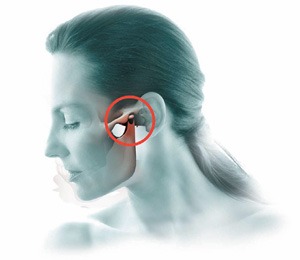
STRESS. We all have it, usually multiple times in a day. Stress is an unfortunate by-product of our hectic schedules and busy routines. Stress is not only harmful to our bodies and minds, but to our teeth as well. Just think about the last large traffic jam you sat in–cars not moving an inch, time clicking away…did you clench your jaw a bit at the memory? Grinding and clenching of the teeth due to stress can lead to Temporomandibular Joint Disorder, or TMD, an inflammation of the jaw joint. Statistics show that this condition affects up to 30 million Americans, the majority of whom are women. TMD can cause not only tooth damage and jaw pain, but headaches, ear aches, neck and shoulder pain, as well as gum trauma.
Reducing the stress in our lives can help reduce the physical pain we feel in our mouths and bodies, but we all know this is easier said than done. Until we learn how to do so, dentists can help in many ways. The most common way is with appliance therapy, colloquially known as a night guard. This device can reduce the trauma clenching and grinding can cause; some devices are even designed to help break the involuntary cycle of grinding. While you can buy a night guard “over the counter” at your local drug store, they are oftentimes bulky and fit poorly. A dentist can make you a custom-fit night guard that is small and easy to wear. An appliance can only help if you actually put it in your mouth, and in our experience most of the drug store night guards get relegated to the bottom of your dresser drawer, doing no good to you whatsoever.
Another way your dentist can help is through teaching specific jaw exercises. These exercises can help strengthen the muscles that support the jaw, reducing spasms that are a common result of grinding. Ever wake up and have difficulty opening your mouth or chewing a bagel? That is because your jaw was being clenched all night long and is now in spasm.
A third way dentists can help is through laser therapy. In the hands of a trained professional, a few minutes with a laser can reduce the inflammation around the joint giving immediate relief in most cases. Ask your dentist which treatment or combination of treatments is right for you.
Dr. Herbert Schneider has been recognized for his work with fellowship awards from the Academy of General Dentistry and the American Endodontic Society. He also holds a prestigious Mastership from the World Clinical Laser Institute. Dr. Rachel Jacobs joined the practice in 2006. Her calm, yet precise manner makes her a hit with both adults and children. Both doctors are certified in the uses of three different clinical lasers. They can be reached through their website www.dumontdentist.com or by calling 201-385-5538.
By Dr. Herbert Schneider & Dr. Rachel Jacobs










